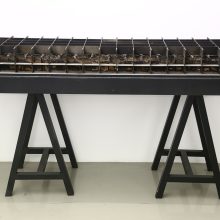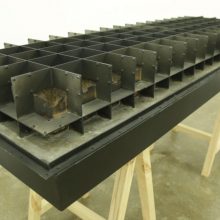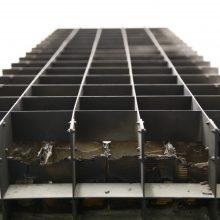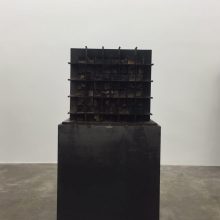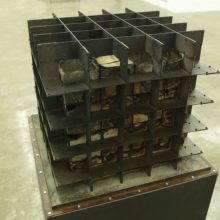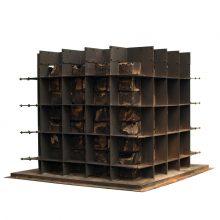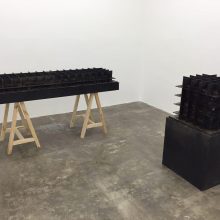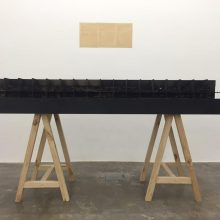Majid Biglari
Majid Biglari
Majid Biglari (b. 1986, Tehran, Iran) has received his BFA in Sculpture from the Tehran University of Art. Biglari’s works often puts the viewer in a contradictory situation: on the one hand, there are notions emptied of their content and aesthetic, with no easy way to guess their probable context. On the other hand, the brutal truth presented in the pieces overwhelms the viewer’s imagination, for he prefers that the audience connect the dots and make sense of the whole show. He avoids giving specific and clear information to the audience, for he believes by doing so the overall vision of the works will be disrupted. What he refers to as fragments, are the pieces that have fallen apart. To connect the pieces, the viewer has to deal with evidences that are either deliberately removed or meticulously damaged. The material that Biglari employs to make his installations usually consist of wood, paint, paraffin wax, glue, steel, and paper. He has exhibited his works in seven solo shows and more than 30 group shows in Iran and abroad. Biglari lives and works in Tehran.
“The Experience of Dishevelment”
The experience of dishevelment is all about distance: the distance between truth and reality; between lies and facts; between inscriptions and images; between news and incidents; between the orderliness of production and the disarray after consumption; about the distance between man and man; about a kind of complication; the habit resulting from repetition; about an abstract form of life; about numbers.
